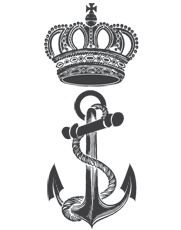Has a bank told you they have no problem with FATCA, CRS or Automatic Exchange of Financial Information?
Some misunderstand what they have said. What they have said is ''we'' only accept transfers from Financial Institutions who have performed the AML & KYC.
For lack of a clean AML & KYC no financial institution would send or receive a transfer of funds.
Tax and Money Laundering are two separate issues. Paying tax does not clean dirty money. Money Laundering prosecution is for the receiver, processor, anyone who touched or had influence over the money and the advisor.
The Clean Nominee Bank Account Third Party Administer is a Financial Institution recognized by Financial Institutions globally as a freeway to transfer in money.
It is absolutely impossible to have any U.S. Tax Counsel, International Tax Counsel or any Bank, Financial Institution, Clearing Bank or Custodian accept your verbal words as proof of anything.
Financial Action Task Force (FATF) rules extends to everybody and leads to freezing up non-compliant banking, people and businesses. Banks are scared of a hiding and therefore only accept transfers from compliant financial institutions.
Anti-Money Laundering (AML) & Know Your Customer (KYC) rules include but are not limited to:
a) An explanation by contract, service agreement or other documentation of how the money was earned. For example services performed, product delivered or other as document description between you and the party paying these funds.
b) Documentation showing exactly from whom and from where the money is coming.
c) Documentation on the source of funds
d) Documentation of the tax jurisdiction of anyone connected to the money as receiver or beneficiary.
Compliance to AML & KYC rules is to make sure that you are not involved in Money Laundering!
Prosecution for Tax Evasion 3-5 years & Money Laundering 20 years. The prosecutions are not segregated which means both are possible. Total of 71 years is also possible.
U.S. Criminal Prosecution: Tax Evasion & Money Laundering
Tax evasion and money laundering may result in criminal prosecution by the US Department of Justice for both tax crimes and “related sister felonies”: wire fraud & mail fraud. When a taxpayer fails to pay taxes due (whether income, estate or gift taxes) and uses the “tax cheating” proceeds (which courts have ruled amount to “profits”) to make investments or purchase assets the taxpayer is liable to be criminally prosecuted for multiple felonies:
- Tax Crimes: Tax Evasion (5 year felony), obstruction of tax collection (3 year felony), file false tax returns (3 year felony);
- Money Laundering: the use of proceeds from a Specified Unlawful Activity (“SUA”), in this case tax evasion, to purchase assets/investments which “transmutes” the illegal proceeds from tax cheating into new assets (20 year felony);
- Sister felonies: Mail fraud (the use of the postal system to effectuate a scheme to defraud, 18 USC 1341, a 20 year felony) and wire fraud (the use of the telecommunications facilities to effectuate a scheme to defraud, 18 USC 1343, a 20 year felony). In the 2005 US Supreme Court Case, Pasquantino the “wire fraud” which triggered a felony conviction was the use of a telephone to make an inter-state telephone call.
For those US taxpayers who cheat on their taxes and then make investments they face 6 different federal felonies, which subjects them to up to 71 years in jail. If the taxpayer conspired with another party to impede the IRS collection of taxes it is known as a “Klein conspiracy” and under 18 USC 371 both parties face 5 years in jail for conspiracy to commit tax evasion.
Money Laundering
Money laundering may be linked to tax evasion. A violation of the money laundering statutes includes a financial transaction involving the proceeds of a specified unlawful activity (“SUA”) with the intent to either:
- Promote that activity;
- Violate IRC Sec. 7201 (which criminalizes willful attempts to evade tax);
- Violate IRC Sec. 7206 (which criminalizes false and fraudulent statements made to the IRS).
Regarding asset seizure, the U.S. government may seize assets pursuant to a violation of the money laundering laws. In addition, the IRS has authority for seizure and forfeiture under Title 26. Under IRC Sec. 7321, any property that is subject to forfeiture under any provision of Title 26 may be seized by the IRS.
IRC Sec. 7301 allows for the IRS to seize property that was removed in fraud of the Internal Revenue laws. IRC Sec. 7302 allows the IRS to seize property that was used in violation of the Internal Revenue laws.
|






 Blog
Blog